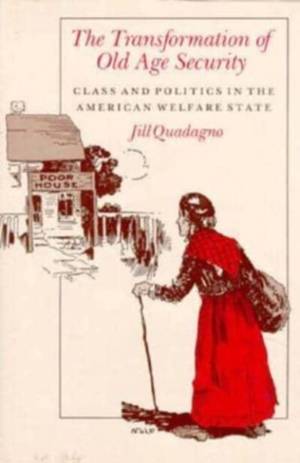
Bedankt voor het vertrouwen het afgelopen jaar! Om jou te bedanken bieden we GRATIS verzending (in België) aan op alles gedurende de hele maand januari.
- Afhalen na 1 uur in een winkel met voorraad
- In januari gratis thuislevering in België
- Ruim aanbod met 7 miljoen producten
Bedankt voor het vertrouwen het afgelopen jaar! Om jou te bedanken bieden we GRATIS verzending (in België) aan op alles gedurende de hele maand januari.
- Afhalen na 1 uur in een winkel met voorraad
- In januari gratis thuislevering in België
- Ruim aanbod met 7 miljoen producten
Zoeken
The Transformation of Old Age Security
Class and Politics in the American Welfare State
Jill Quadagno
Hardcover | Engels
€ 81,45
+ 162 punten
Omschrijving
Why did the United States lag behind Germany, Britain, and Sweden in adopting a national plan for the elderly? When the Social Security Act was finally enacted in 1935, why did it depend on a class-based double standard? Why is old age welfare in the United States still less comprehensive than its European counterparts? In this sophisticated analytical chronicle of one hundred years of American welfare history, Jill Quadagno explores the curious birth of old age assistance in the United States. Grounded in historical research and informed by social science theory, the study reveals how public assistance grew from colonial-era poor laws, locally financed and administered, into a massive federal bureaucracy.
Specificaties
Betrokkenen
- Auteur(s):
- Uitgeverij:
Inhoud
- Aantal bladzijden:
- 268
- Taal:
- Engels
Eigenschappen
- Productcode (EAN):
- 9780226699233
- Verschijningsdatum:
- 18/02/1988
- Uitvoering:
- Hardcover
- Formaat:
- Genaaid
- Afmetingen:
- 160 mm x 237 mm
- Gewicht:
- 498 g

Alleen bij Standaard Boekhandel
+ 162 punten op je klantenkaart van Standaard Boekhandel
Beoordelingen
We publiceren alleen reviews die voldoen aan de voorwaarden voor reviews. Bekijk onze voorwaarden voor reviews.









